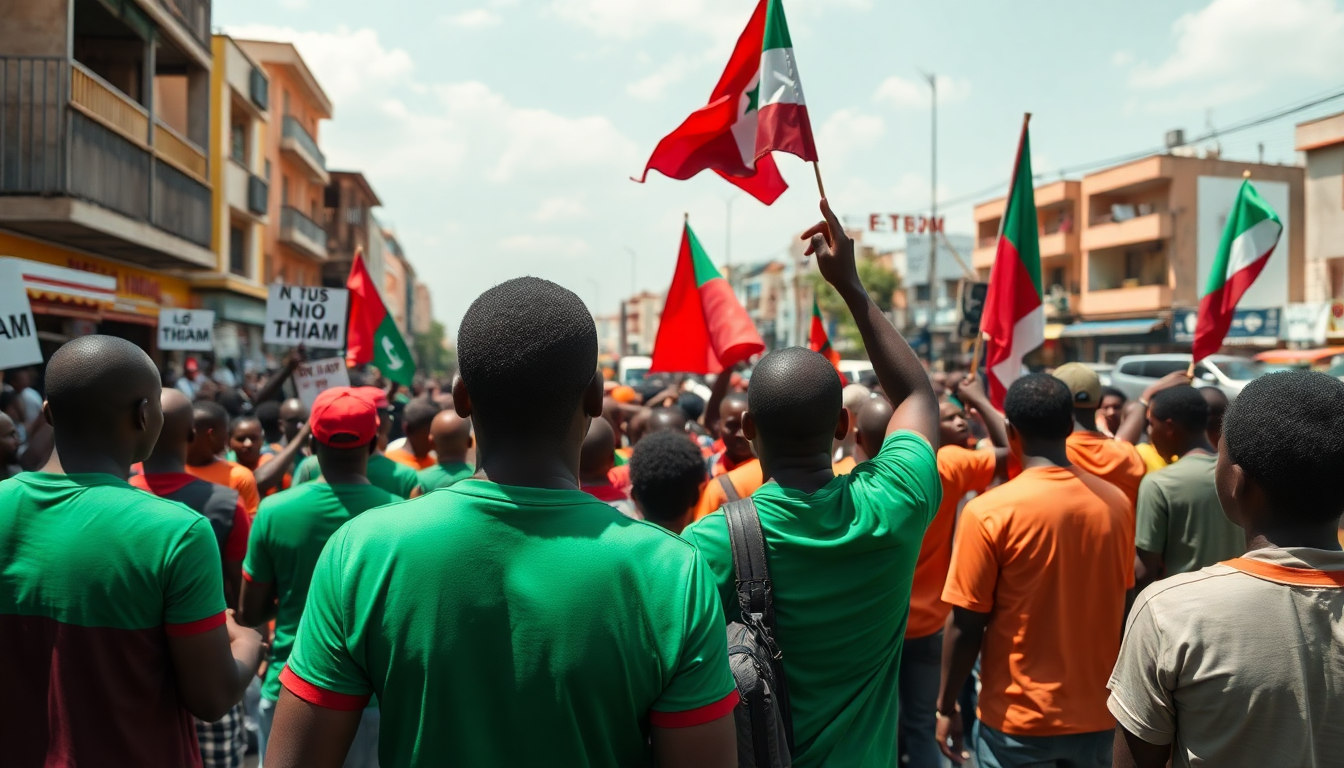Table of Contents
As the October elections approach, tensions are rising in Ivory Coast, bringing back memories of the civil unrest that shook the nation in 2011. In Abidjan, supporters of presidential candidate Tidjane Thiam have turned out in large numbers, demanding justice against what they perceive as an unjust exclusion from the electoral process. Clad in the colors of Thiam’s Democratic Party of Ivory Coast (PDCI), these demonstrators are voicing their discontent over the electoral commission’s decision to bar their candidate, raising serious concerns about the country’s political stability.
The Political Landscape and Historical Context
The ongoing protests highlight the anxiety gripping West Africa’s second-largest economy as citizens prepare for the upcoming polls. The specter of election-related violence looms large, with the scars of the 2011 civil war still fresh in the minds of many Ivorians. At the heart of this turmoil is incumbent President Alassane Ouattara, whose potential bid for a fourth term has ignited contention among voters and political factions.
Thiam’s exclusion from the candidate list has become a major flashpoint for dissent. Initially disqualified due to citizenship complications linked to his French nationality acquired in the 1980s, Thiam has since renounced his dual citizenship. Yet, a court ruling has deemed him ineligible based on technicalities surrounding his electoral registration. This development has sparked allegations that Ouattara’s government is engaging in politically motivated maneuvers to eliminate strong opponents, casting doubt on the integrity of the electoral process.
In this tense atmosphere, Thiam’s supporters are rallying behind him, viewing him as a transformative figure capable of steering the nation toward a more inclusive and prosperous future. With a background as a renowned businessman and former CEO of Credit Suisse, he appeals particularly to younger voters who are disillusioned with the status quo.
Implications for National Stability
The stakes in these elections are incredibly high, not just for the candidates but for the entire nation. Thiam’s supporters argue that Ouattara’s ruling party is systematically dismantling the opposition to secure an easy victory. Political analysts, like Sylvain N’Guessan from the University of Bondoukou, warn that should Ouattara run unopposed, his perceived illegitimacy could further deepen divisions and erode trust among the electorate.
The echoes of identity politics, which have historically fueled conflict in Ivory Coast, resurface as Thiam’s supporters allege discrimination based on nationality laws that disproportionately affect opposition figures. This political climate raises critical questions about the future of democracy in Ivory Coast and the potential for renewed violence if tensions continue to escalate.
Moreover, the ramifications of these elections extend beyond national borders, with regional stability also at stake. Amid ongoing security crises in neighboring countries, the international community is watching closely, concerned that a volatile election could create ripple effects throughout West Africa.
Looking Ahead: The Road to Election Day
As the political landscape evolves, both supporters and opponents of the government are bracing for what promises to be a contentious election. Recent gatherings by both Thiam’s supporters and Ouattara’s ruling party underscore the polarized atmosphere surrounding these elections. Each side is preparing for a showdown that could significantly impact the nation’s future.
With the elections just around the corner, it’s crucial for all stakeholders to engage in dialogue to ease tensions and promote a peaceful electoral process. The lessons of the past cannot be ignored; the scars from the civil war still resonate deeply within Ivorian society. As citizens articulate their hopes and fears, fostering a climate of inclusivity and respect for democratic principles is essential. How will this election shape the future of Ivory Coast? Only time will tell.


